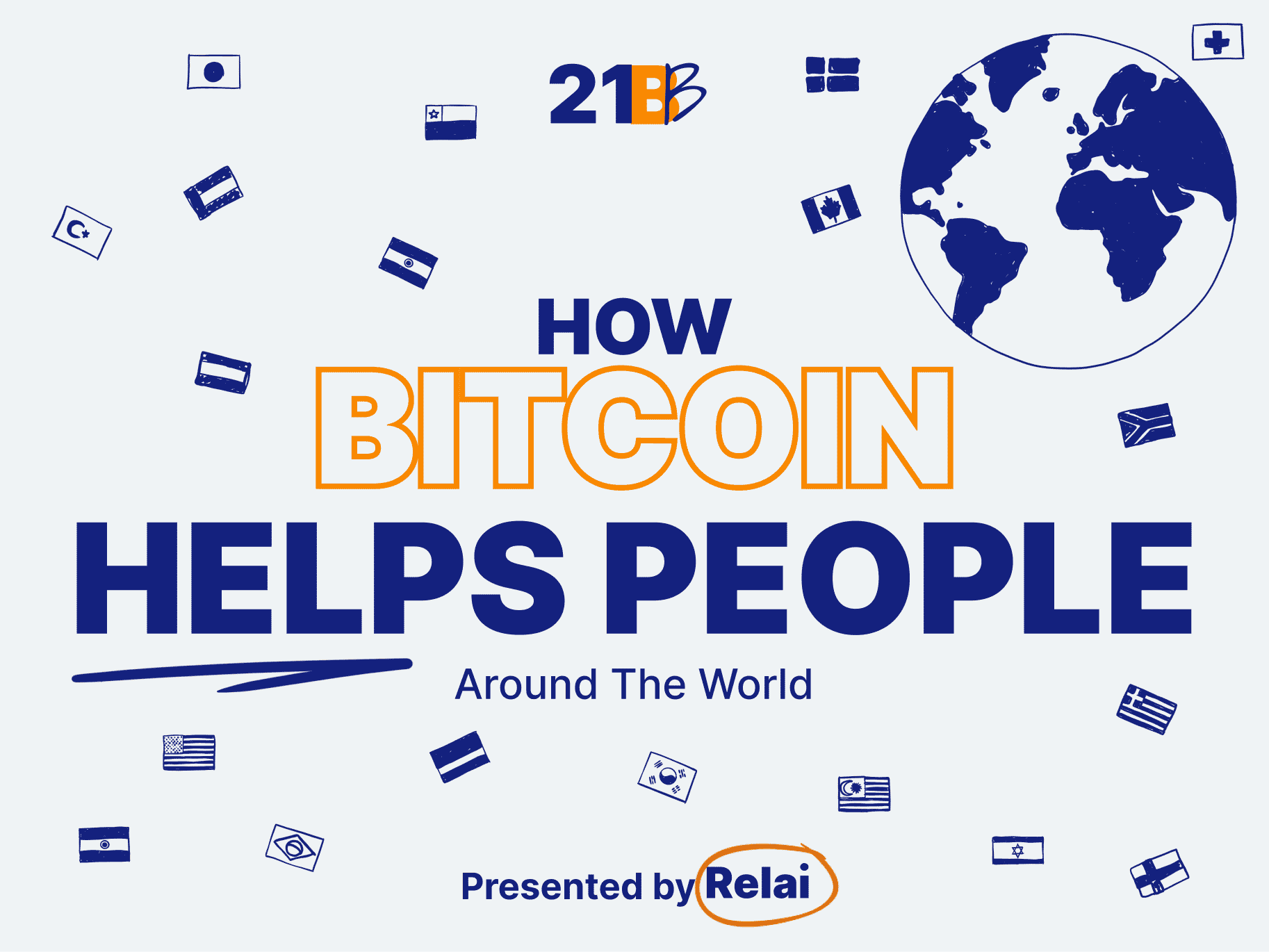There is no doubt that Bitcoin is attracting much attention because of speculation on a possible future price measured in fiat currencies like the euro or the US dollar. However, there are situations, especially in developing countries, where using bitcoin is more than that; it acts more like a life raft.
In this lesson, you will learn how Bitcoin is used in developing countries for more than speculative purposes.
Bitcoin’s role as a fallback solution
Bitcoin is getting more popular around the world. In rich countries, most people have access to a functioning banking system. Fiat currencies like the Swiss Franc, the Euro, or the British Pound are among the most sought after worldwide – usually right after the US Dollar. Owning bitcoin and even spending it is something that most people in those countries do because they want to participate in emerging technology. Most speculate on the price and ‘HODL’, some decide to spend their BTC in shops or places to support a cause, rather than not having other options.
However, the situation couldn’t be more different in other parts of the world. According to the Human Rights Foundation, around half of the world’s population lives in countries with authoritarian leaders and/or governments. That means that currently, 4 billion people suffer from political oppression, (financial) surveillance, and often-times high inflation. Looking at official statistics by the United Nations, we see that 15 of the top 20 countries in digital currency ownership are developing countries. People in Afghanistan, Argentina, Ethiopia, Nigeria, Sudan, Ukraine, Venezuela, and many other countries are not viewing Bitcoin as an interesting investment but as a way to escape their broken political and financial systems.
Let’s look at countries to see how people use bitcoin and more there.
Argentina
The South American country Argentina is known for its unstable currency, the Argentine peso, and shortlived governments. In a New York Times article, local economist Marcos Buscaglia said: “Money here is like ice cream. If you keep a peso for too long, it melts in terms of how much you can buy with it.” As people in Argentina deeply distrust their local currency, they flock to saving money in other currencies, mainly the US Dollar. They hold more dollars in cash or in US bank accounts than almost any other population – except US citizens. However, the Argentine government is making it increasingly harder to acquire US Dollars, so Bitcoin comes into play. According to a June 2022 survey, nearly 60 percent of Argentines said that they think Bitcoin will be able to retain its value better than their local currency. The situation in Argentina gives an idea of what happens when central banks cannot stabilize a fiat currency, and people lose trust in their local government and money.
Nigeria
With a population of more than 218 million, the most populous country in Africa also has the world’s largest number of young people with a median age of just 18 years. 70 percent of Nigerians are under 30, and many are tech-savvy. This, combined with political repression, high inflation, and strict capital controls, led many people to cryptocurrencies. Bitcoin (and unfortunately also crypto pyramid schemes) were so popular that the government decided to ban ‘crypto’ altogether. Soon after doing so in February 2021, the government realized that banning cryptocurrencies is tricky, so they backpaddled. An anonymous source told The Guardian: “They know they can’t stop it. It’s out of their control, and what scares them is they are not used to being in this position.”
Ukraine
Ukraine is different from Nigeria, as they already had a positive stance towards cryptocurrency before the Russian invasion of Ukraine. But soon after the war started, the Ukrainian government took the strategic decision to expand its use of crypto to support its economy. On the second day of the war, Ukraine’s digital transformation minister Mykhailo Fedorov set up official government wallets that were able to accept payments in cryptocurrency. Thanks to this bold move, Kyiv raised more than €120 million in crypto which has helped to support its troops and buy military supplies. But not only the government benefited: Two Danish journalists paid 0.059 bitcoin to buy a Mazda 3 car on their way out of Ukraine after the war started. There are other, even more desperate stories of a Ukrainian refugee who fled to Poland with $2,000 in bitcoin on a USB drive. Bitcoin turned out to be useful to bring out some money after the war broke out safely. Many people have also turned to cryptocurrency to safeguard their cash, bring their money with them, accept remittances and donations, and transact with it each other for daily necessities.
Takeaways:
- Around half of the world’s population lives in countries with authoritarian leaders and/or governments. That means that currently, 4 billion people suffer from political oppression, (financial) surveillance, and often-times high inflation.
- For those people, Bitcoin is not only an interesting investment but a way to escape their broken political and financial systems.
- Bitcoin is a hedge against monetary debasement and monetary repression. When the usual banking systems stop working, or the local fiat currency falls apart, bitcoin is still there.
Disclaimer: Relai services are exclusively recommended for Swiss and Italian residents. None of this content constitutes investment advice. Always conduct your own research before investing in any digital asset.






